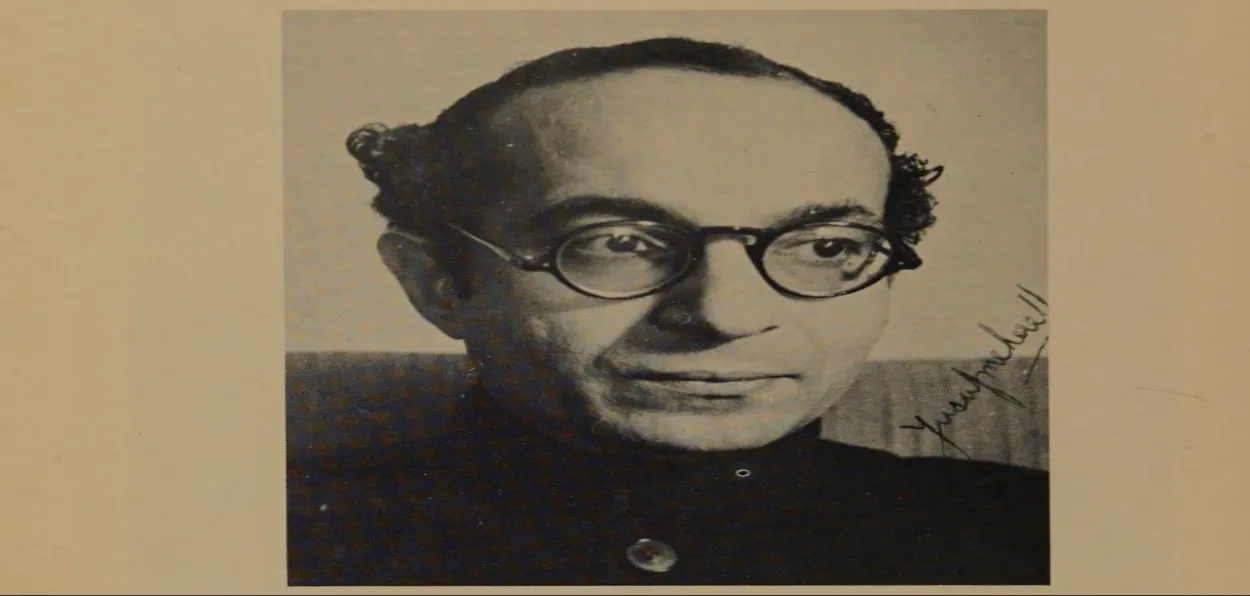
Saquib Salim
"If Meherally had lived nobody knew what he could have done. Even in his earlier days his name was uttered only after the names of Jawaharlal Nehru and Subhas Chandra Bose… I do not know about others, but to me Yusuf's dedicated life will ever remain an inspiration, only next to Gandhiji's.” Jaya Prakash Narayan said this after the death of Yusuf Meherally, the youngest mayor of Mumbai and architect of the Quit India Movement, or the August revolution.
Yusuf Meherally died young at the age of 44 on 2 July 1950 as a result of health complications contracted in the British prison during the Quit India Movement. He joined early and led the student movement in Mumbai and India. An ardent socialist, Meherally was a great organiser and orator. He rose to prominence during the agitations against the Simon Commission in 1927.
Bombay Youth League was started by Meherally to organise youth against the imperial government. The Simon Commission reached India under heavy security because of the threats of political agitations. It was a daunting task to reach the members of the commission at Mumbai port. So, Meherally with his comrades dressed as coolies and entered the port where the ship carrying the commission had to reach. As soon as the commission deboarded the ship, they started showing black flags and shouted slogans of ‘Simon Go Back’.
The slogan caught the imagination of the Indian Youth. Across the length and breadth of the country, people shouted the slogan, painted it on walls, and flew it with kites to register the protest without knowing that a young man in Mumbai had coined it.
The rise was at a fast pace. Meherally became an important socialist thinker and politician. His proximity to Mahatma Gandhi was well known. In his memoirs, Bertram David Wolfe wrote, “As he talked to me about Gandhi, I began to realize that there was a warm bond of affection and good-humored intimacy that bound Yusuf to him in a relationship that was compounded of father and son, master and disciple, friend and friend, in unequal parts.…. In their hearts, there was a tie of common moral principle and deep affection and the warm bond that links a devoted disciple to a great teacher.”
No wonder, when Mahatma Gandhi decided to launch a movement in 1942, Meherally became his trusted advisor. He designed the program as well as coined the name of the movement, the Quit India Movement, which was agreed upon by Gandhi.
Shirubhau Limaye recollected later, “A couple of months before August '42, socialist workers - had held a secret camp in Pune. It was addressed by Senapati Bapat and Yusuf Meherally. Anticipating the wholesale arrests of the leaders, those who conducted the camp made some plans for an underground struggle. The top leaders may go behind bars, but other leading activists were to go underground.”
Prem Bhasin, another freedom fighter, also shared the sentiments. He wrote, “Yusuf Meherally had played a crucial role in "preparing the field" for the biggest non-violent strike on British Imperialism. With his wide contacts and his position as the Mayor of Bombay, he had an inkling of Government plans and had motivated many to go underground in time. Punjab Government's Home Political File, F.No. 18/8/42, had this to report: "Meanwhile the CSP had announced its intention of wholeheartedly following the Congress move. Puran Chand Azad, who was sent to Bombay, had returned with instructions from Yusuf Meherally, Secretary All India Congress Socialist Party, to the effect that all active workers should go underground and that widespread violence should be started.”
Madhu Dandavate also recalled, “As clouds roared and lightning flashed. Yusuf Meherally, the young Mayor of Bombay and the stormy socialist petrel roared from the dias: "In the coming freedom struggle, there will not be the usual programme of courting arrests to fill up the jails, but we will have to paralyse the entire administration of the British government in India". These piercing words went home in many young minds in the audience.….. Fully realising the implications of the decisive struggle Gandhiji wanted to launch against British rulers, the dynamic socialist leader Yusuf Meherally had systematically planned camps of socialist workers to plan underground resistance in the event of the expected arrest of national leaders. It was not an accident of history that socialists provided a nucleus to the underground activities in the 1942 revolution.”
ALSO READ: Wg Cdr MA Afraz dug out 26,000 stories of martyrs to commemorate their valour
Of course, such an enemy of the British Empire had to be dealt with ‘special care’ in prison. Meherally developed health problems in jail in 1942. The newspapers reported on his death, “Mr. Meherally was admitted to the hospital last week for treatment to heart trouble, which he developed after his detention during the "Quit India" movement in 1942.”
Meherally led the last mass movement against the British Empire in India and laid down his life during the process.
